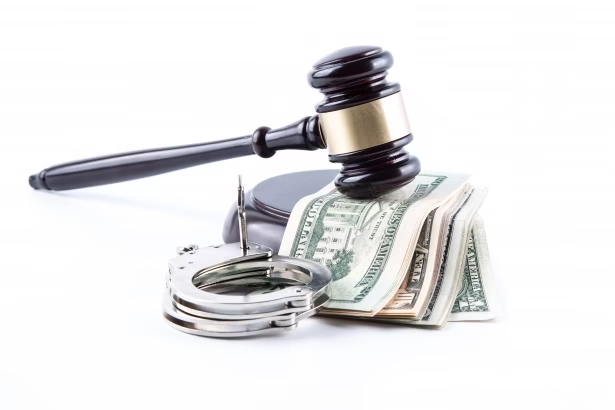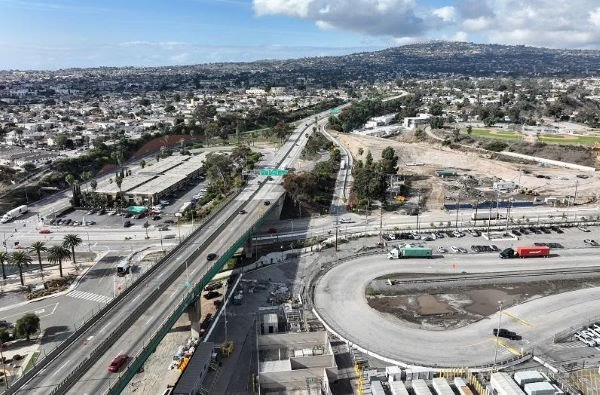What would happen to San Pedro without art?
When high-rise residential buildings were emerging downtown, local developers marketed the region, highlighting restaurants, the arts district and downtown life to get people to buy into the lofts and high-rises in a downtown destination. Why does the San Pedro Property Business Improvement District (PBID) not see what is right in front of it and promote the history, the community and the art created here? This is what attracts people to downtown San Pedro and its California Cultural District designation. If property owners price out and push out galleries, good retail establishments, and bars in the region (The Alhambra, which was nearly a century old, Harold’s Place and others), it diminishes the downtown destination that people came here for and which attracts Pedro’s surrounding neighborhood communities.
This summer, the PBID announced a new downtown summer night market that “expands” the nearly three-decade-long First Thursday ArtWalk. The headline read: “Downtown San Pedro First Thursday ArtWalk Expands Into Full-Scale Night Market Starting July 3.” The event was later moved to Aug. 7, out of concern for the community, suggesting this decision was about the ICE raids that have been terrorizing residents throughout Los Angeles.
Who knew? Certainly not the resident artists. In addition, August’s ArtWalk was host to three other events: the Friends of Cabrillo Marine Aquarium pop-up gift shop, Molly D’s Bakery & Pet Supplies grand opening ribbon cutting, and Gateway Plaza’s Fanfare Fountain reopening. Maybe the initiators of the night market thought the number of people attending the plethora of events would justify their decision to “expand” the ArtWalk.
Why hold a night market during First Thursday ArtWalk? Critics suggest it’s another decision by business and property owners to capitalize on the arts district’s reputation — benefiting commerce rather than artists.
Linda Grimes, executive director of the San Pedro Waterfront Arts District, told Random Lengths the PBID secured permission from Supervisor Janice Hahn and the developer to use the courthouse parking lot on 6th Street. The night market was scheduled for First Thursday, reportedly to attract more visitors. The PBID did not respond to inquiries about whether artists were consulted.
History
In the early 2000s, the Arts, Culture and Entertainment or ACE District institutionalized San Pedro’s arts scene. Random Lengths News publisher James Preston Allen and other artists lobbied for seven years to secure $500,000 from the Community Redevelopment Agency. ACE initially had a board dominated by local artists; it was later taken over by Linda Grimes and others who limited the number of artists on the board. In 2012, Gov. Jerry Brown’s dissolution of the CRA effectively ended the ACE District’s artist-run board. The founding of the PBID further shifted influence over the ArtWalk away from the artists in favor of the chamber of commerce and property owners.
One of the early instances of these decisions, mentioned above, was to bring food trucks to the ArtWalk, located in a downtown area with an ample supply of exceptional restaurants. The mobile eateries were placed along 6th and 7th streets in front of galleries and businesses, which were doing their part — and with hopes of making money — by staying open later to support the ArtWalk. Crafts people also came out on First Thursday to sell their wares in front of the mom and pop businesses or vacant storefronts. This has been the makeup around the San Pedro ArtWalk for many years, while artists have remained present in the thirty-some galleries or studios the entire time, and the arts district strived to become a destination. This looked like it was succeeding in 2017, when the California Arts Council designated the San Pedro Waterfront Arts District as one of 14 California Cultural Districts.
One thing RLN has heard consistently from San Pedro artists is that the PBID doesn’t communicate with its neighbors — the artists and businesses it is supposed to support and collaborate with. The purpose of PBIDs is to supplement public services within a geographical boundary from tax revenues it assesses on property and business owners. What’s unclear is which public services and who they are benefiting? Allen said promises by PBID to financially support activities in the arts district were never fulfilled.
Longtime local artist Ron Linden, who served on the ACE District board, said he doesn’t oppose the night market itself but objects to scheduling. He noted that there has never been any discussion about the merits, or lack thereof, of what the PBIDs’ plans are.
“They don’t have the courtesy to notify people of the plans that they are going to be affected by,” said Linden.
Linden explained that in the ensuing years after artist Robin Hinchliffe and original Whale & Ale proprietor Andrew Silber put together the First Thursday ArtWalk, there were eventually several corrections that the board had to make. He recalled things rapidly devolving into a carnivalesque atmosphere, including inflatable jumpers and “choo-choo trains.”
“Things were going far astray from a real ArtWalk,” Linden said. “We managed to clean that up and put the focus [back] where it belonged, on artist galleries and studios and local restaurants and bars.”
He criticized the PBID for leveraging the “lively arts district” image for marketing while offering no real financial support to artists.
“Because no artists around here are getting rich,” Linden said. “That’s for goddamn sure. And they’re not going to get rich. They could be helped considerably by the PBID, with things like rent control or at least rent stabilization.”
Artist and graphic designer Peter Scherrer is the owner of solo. Gallery on 7th Street, one of the newest galleries in town. He also has no problem with the night market, but said he doesn’t understand why it needs to be on a First Thursday.
“If it were on a different day, then everyone would be fine with it,” said Scherrer. “The Night Market to me is just a symptom. There’s bigger issues, like PBID makes these decisions without asking us anything. They just think it’s good for us, or good for them, or I don’t know for whom … How about asking the artists how we feel about it? It is the ArtWalk. First Thursday used to be about art, correct?”
Scherrer noted that outdated artist listings and a lack of coordinated promotion compound the problem.
“You should talk to your neighbors,” Scherrer said. “But some people were happy and appreciated the traffic on the street and the bands playing … were pretty good. The bigger issue is the lack of communication.
“I’m trying to understand their point. First Thursday has been dwindling in attendance. There’ve been a couple of okay nights, but ever since I moved down here, it’s getting worse. They probably felt that if they did something, that’s going to help the whole event. I don’t blame them for that.”
Scherrer talked to David Winthrop, co-owner of The Winthrop Gallery, who thinks the night market is a good thing if it gets people down here, whatever day it is. The idea is more people, more business.
“It’s a valid argument, “ Scherrer said. “… It goes back to, okay, more people, but they don’t need [it] to be on First Thursday. Because what’s going to happen if the night market is as strong as they think it’s going to be, essentially, First Thursday is going to disappear, and it’s just going to be the night market. That’s the main problem.”
Logistics and Impact
Artists also worry that rising rents and empty storefronts threaten the arts district’s character. One retail store reportedly left after landlords raised rents beyond sustainable levels. Developers have marketed downtown as a destination for restaurants, arts and urban life, but property pricing threatens that identity.
Cherry Wood is the owner of Backdoor Studios off of 7th Street. Wood said she didn’t actually get to go to the night market because she was so busy with her gallery show, but there definitely seemed to be a lot of people.
“That’s a good thing,” said Wood. “We want more people.”
There was a big event at the Cabrillo Marine Aquarium pop-up for the store opening, and Wood noted people came for that, and from there they walked up to her gallery. The Fanfare Fountain opening brought people into her gallery, too.
“Any event that’s happening within a block or two of 7th Street brings more people,” she said. “So it was good. My only thought is, personally, I would prefer it to be on a Friday night or Saturday afternoon.
“When we had the two-day event in April by Arts United, I had a lot more people from Los Angeles, and that’s really good. People who never come down to San Pedro said it was their first time [here], and that was a huge success for me. I prefer daytime events as well because people can see the art better.”
Wood said whatever the arts district or PBID does, they need to advertise more. She pointed out it’s important to talk about where to park and how to get here.
“I tell people to go online (to SP Waterfront Arts District) and see where the red trolley car stops.
Newcomer
Artist Rebecca Jarus and her husband came from Rolling Hills Estates to visit the ArtWalk for the first time in August. When asked if they had attended the night market, the couple said they didn’t know about it. They spoke to RLN while the night was still young at Backdoor Studios, and they thought they might check it out after leaving the gallery.
Most people RLN spoke with on First Thursday didn’t know about the night market.
Jarus later told RLN that they did spend a little time on 6th Street and Mesa. She said it felt a little too much for them. “Too noisy, too crowded, too chaotic on a small scale, not seriously chaotic.
“The food is not the kind of food we can normally eat at our age, but it looks like everybody else was having a good time. The items they were selling at the market are not something we would purchase.
“I liked the wildness and the rawness of the galleries that are in the area.”
Looking Ahead
Artists question whether their input will shape future events. The PBID reportedly signed a one-year contract for the night market, but its ongoing scheduling remains unclear.












